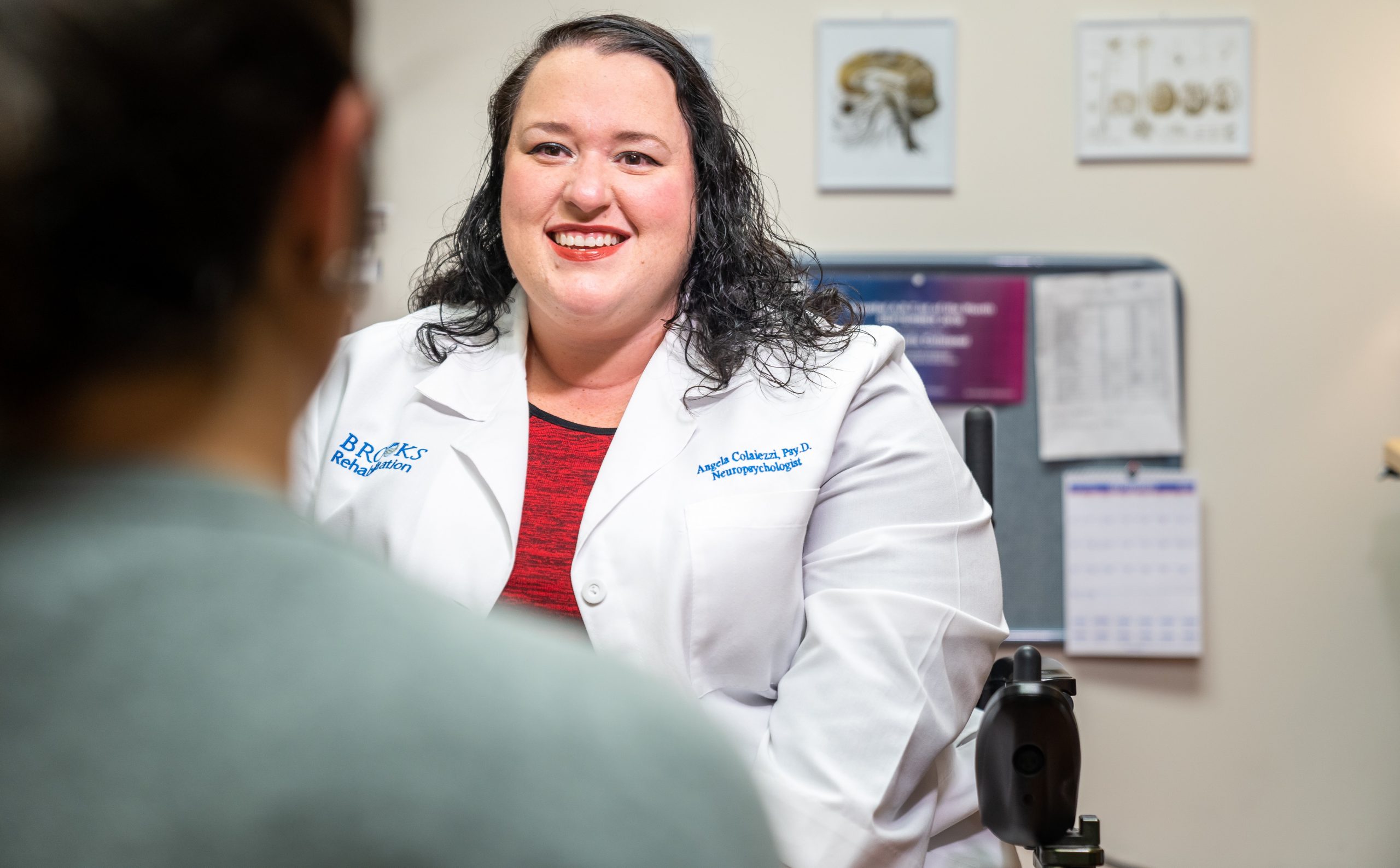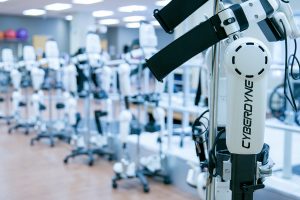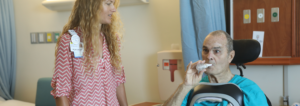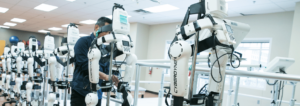8 Questions about Post-Stroke Depression

Back to physical health resource hub
Often when we think about the effects of stroke, we think of visible changes, like difficulty walking or trouble using an arm. Changes in speech and memory also often come to mind. However, depression is a common post-stroke complication that may go over-looked, causing unnecessary suffering and impacting overall recovery.
1. What does post-stroke depression look like?
Symptoms of post-stroke depression are consistent with depression and include low mood and anhedonia as well as changes in appetite, concentration, sleep, and energy. A formal diagnosis is made when these types of symptoms persist for two weeks or longer and interfere with an individual’s day-to-day functioning.
2. How common is depression after stroke?
Research indicates that around 30% of stroke survivors develop depression within five years after their stroke.
3. What makes it difficult to identify depression after stroke?
There is an overlap between symptoms of stroke and symptoms of depression. For instance, changes in sleep and appetite can be seen both following stroke as well as due to depression. There is also often a tendency to “explain away” symptoms of depression in the context of stroke by attributing changes in an individual’s functioning to the stroke alone.
4. What causes depression after stroke?
The cause of post-stroke depression is likely due to a biopsychosocial etiology, meaning there are multiple intertwined factors that are associated with the development of depression after stroke.
There are biological factors, such as physiologic changes in the brain and genetic characteristics, which may contribute to mood changes following stroke. Psychological factors, including prior history of mental health concerns and personality, also likely play a significant role.
Adjustment to changes in day-to-day life, such as social roles and relationships as well as work and recreational activities, may contribute to mood difficulties. All of these factors likely influence each other, and the combination of these factors is unique to each individual.
5. Are there predictors for depression after stroke?
Research suggests that experiencing physical disability following stroke as well as cognitive dysfunction, particularly changes in language ability, contribute to risk for the development of depression after stroke. We also know that lack of social support can contribute to the development of post-stroke depression.
6. What happens if depression goes untreated?
Ultimately, untreated post-stroke depression is a barrier to optimal recovery. This may look differently for different people, but we know that it may contribute to less engagement in rehabilitative therapies as well as increased memory complaints.
Mood is the strongest predictor of quality of life following stroke, and this appears to be true for both stroke survivors as well as their caregivers. Those who experience untreated post-stroke depression are also less likely to return to work and other meaningful activities (e.g., driving, hobbies), and they often have trouble making lifestyle changes recommended to reduce risk for secondary stroke.
7. What treatment is available for post-stroke depression?
Psychotherapeutic treatment can help stroke survivors understand their symptoms, identify coping skills, develop compensatory strategies, and find new ways to think about their post-stroke life. It may also be a venue for learning more about stroke and available community resources.
Antidepressant medications have also been shown to be useful for treating post-stroke depression. There is evidence that these types of medications also enhance physical and cognitive recovery. Taking care of yourself is also an important component of recovery from stroke as well as treatment for depression. This includes being mindful of what you’re consuming and how much physical activity you’re getting as well as staying socially engaged.
8. How can Brooks help?
For patients who are admitted through the inpatient rehabilitation program at Brooks Rehabilitation Hospital, psychology and neuropsychology services are available to assess and treat mood concerns.
On an outpatient basis, psychologists and neuropsychologists are also available to complete comprehensive assessments to better understand post-stroke psychological and cognitive symptoms as well as to provide psychotherapy to treat these symptoms.
Brooks also has several services available for individuals who are experiencing communication and cognitive deficits following stroke, including outpatient speech therapy and cognitive therapy as well as the Brooks Rehabilitation Aphasia Center (BRAC).
Connect with Brooks Behavioral Medicine
To obtain more information about the services provided by Brooks Behavioral Medicine, please contact us directly at (904) 345-7210 or [email protected].


